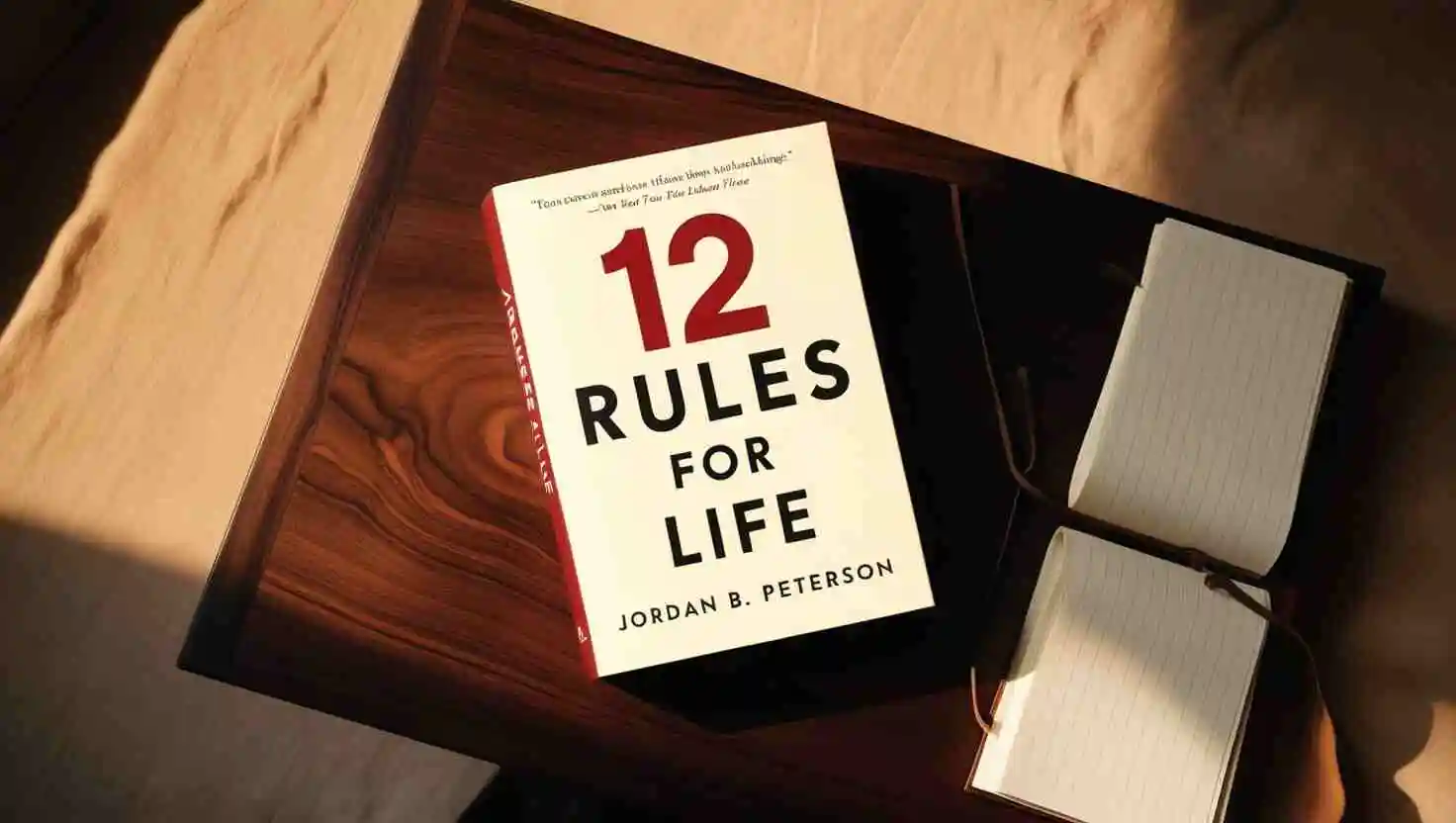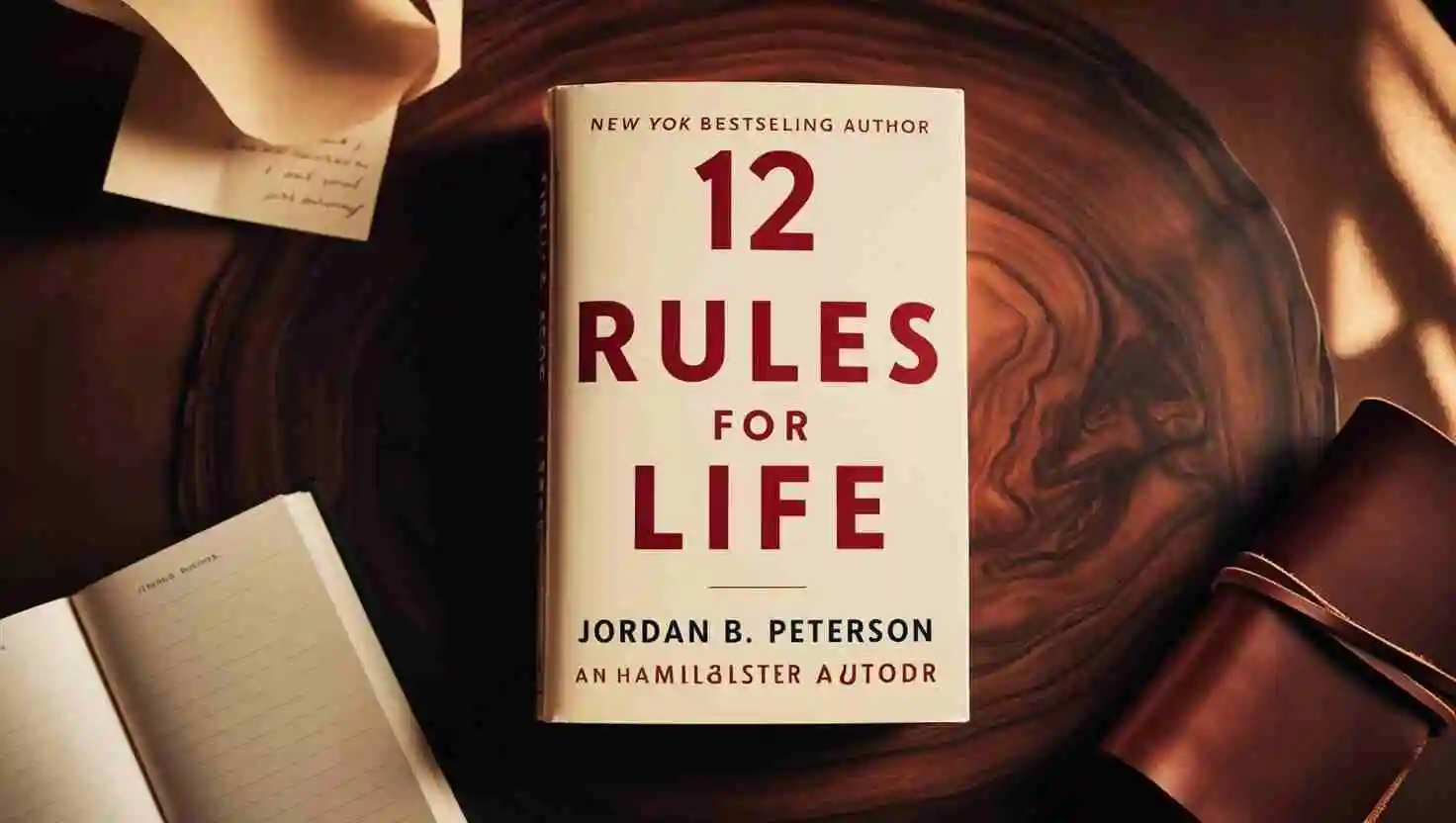Hey readers, Today we give you the book review of 12 rules for life summary. Jordan Peterson’s book “12 Rules for Life: An Antidote to Chaos,” which offers helpful guidance based on psychology, philosophy and personal stories, has made a deep impression with readers around the world. Clinical psychologist and professor Peterson uses a variety of sources to condense centuries-old wisdom into twelve meaningful guidelines that people can use to help deal with life’s challenges.

Table of Contents
What is 12 rules for life summary book about?
Jordan Peterson’s book “12 Rules for Life: An Antidote to Chaos” provides a useful framework for managing the challenges of contemporary life using twelve practical and philosophical principles. Peterson blends personal stories, philosophy, and psychology to help people live more purposeful lives. Each guideline tackles essential aspects of society’s dynamics and human behavior, from supporting honesty and personal growth to inspiring self-responsibility and building meaningful relationships.
Peterson’s method promotes resilience and personal growth by encouraging people to face turmoil and uncertainty with courage and honesty. The book encourages readers to self-improve, live a purposeful life, and ultimately find fulfillment despite life’s obstacles by offering practical guidance and helpful tips.
Important themes are explored in this book
“12 Rules for Life: An Antidote to Chaos” by Jordan Peterson explores several important themes that resonate deeply with readers seeking guidance and meaning in their lives. Central themes include:
Personal responsibility: Peterson emphasizes the importance of accepting accountability for one’s actions, decisions, and well-being. He argues that developing one’s sense of self and creating a purposeful life depends on taking responsibilities.
Personal agency: The book promotes the development of resilience and fortitude in the face of life’s obstacles by encouraging people to speak up in the face of turmoil and misfortune.
Meaning and purpose: Peterson discusses the importance of pursuing important objectives and moral principles more than fleeting pleasures or practical decisions. He argues that having purpose in life increases resilience and psychological well-being.
Relationships and social dynamics: Peterson explores how social relationships affect mental health and human development. He advises readers to build supportive relationships that promote growth and respect for one another.
Truth and Honesty: It emphasizes that these qualities are fundamental to both society and individual well-being. In his speech, Peterson emphasizes the importance of being honest in both communication and introspection.
Psychological Insights: Peterson provides insights into human behavior, motivation, and the function of narrative in forming social norms and personal identity through the use of psychology and mythology.
Harmony and Balance: The book promotes a balanced lifestyle in which people work to find a balance between their spiritual needs, social obligations, and personal goals.
Peterson challenges readers to consider their morality, confront turmoil with deliberate action, and, through these disciplines, create a life that is socially and personally meaningful. His thoughtful combination of academic rigor, advice for everyday life, and philosophical reflection makes “12 Rules for Life” a practical manual for navigating the intricacies of the contemporary world.
Also read this book summary: Icebreaker book summary
Important messages in this book
- Accept accountability for your life and health.
- Hold your head high and bravely face life’s obstacles.
- Respect who you are and make yourself a priority.
- Build supportive relationships and positive influence circles for yourself.
- Instead of comparing yourself to others, focus on your ongoing personal growth.
- For both personal and social stability, discipline and boundaries are essential.
- Before criticizing others or trying to change society, work on improving yourself.
- Set meaningful objectives in line with your beliefs rather than practical things.
- Honesty and integrity are essential for positive interpersonal interactions and personal growth.
- Be humble and receptive when engaging in dialogue and learning.
- To improve communication, make sure your opinions are expressed properly and clearly.
- Give children and others the freedom to experiment and take risks in order to grow.
- Acknowledge the joy and beauty found in life’s little pleasures.
- Be resolute and determined in the face of chaos and disaster.
- Make your goals and actions meaningful and purposeful.
- Recognize the narratives and psychological incentives that influence behavior.
- Create a balance between personal goals and social obligations.
- Accept customs and practices that provide direction and significance.
- Put yourself in discomfort so you can learn from it.
- Develop an attitude of appreciation and gratitude for all that you have in life.
Conclusion: Final words
In short, Jordan Peterson’s “12 Rules for Life: The Antidote to Chaos” offers a comprehensive combination of philosophy, psychology, and common sense to help people live more purposeful and happier lives. Using his twelve rules, Peterson inspires readers to admit their mistakes, develop patience in the face of difficulty, and work toward objectives that are consistent with their core beliefs.
He emphasizes the value of self-care, deep connection, integrity, and continual personal growth as a means of achieving both social harmony and personal satisfaction. By embracing these values, readers are inspired to face life’s obstacles with bravery and moral integrity, ultimately aiming to create a life filled with meaning, fulfillment, and purpose. Peterson’s observations strike a deep chord with readers, providing a timeless framework for dealing with the complexity of contemporary life and fostering personal growth.
